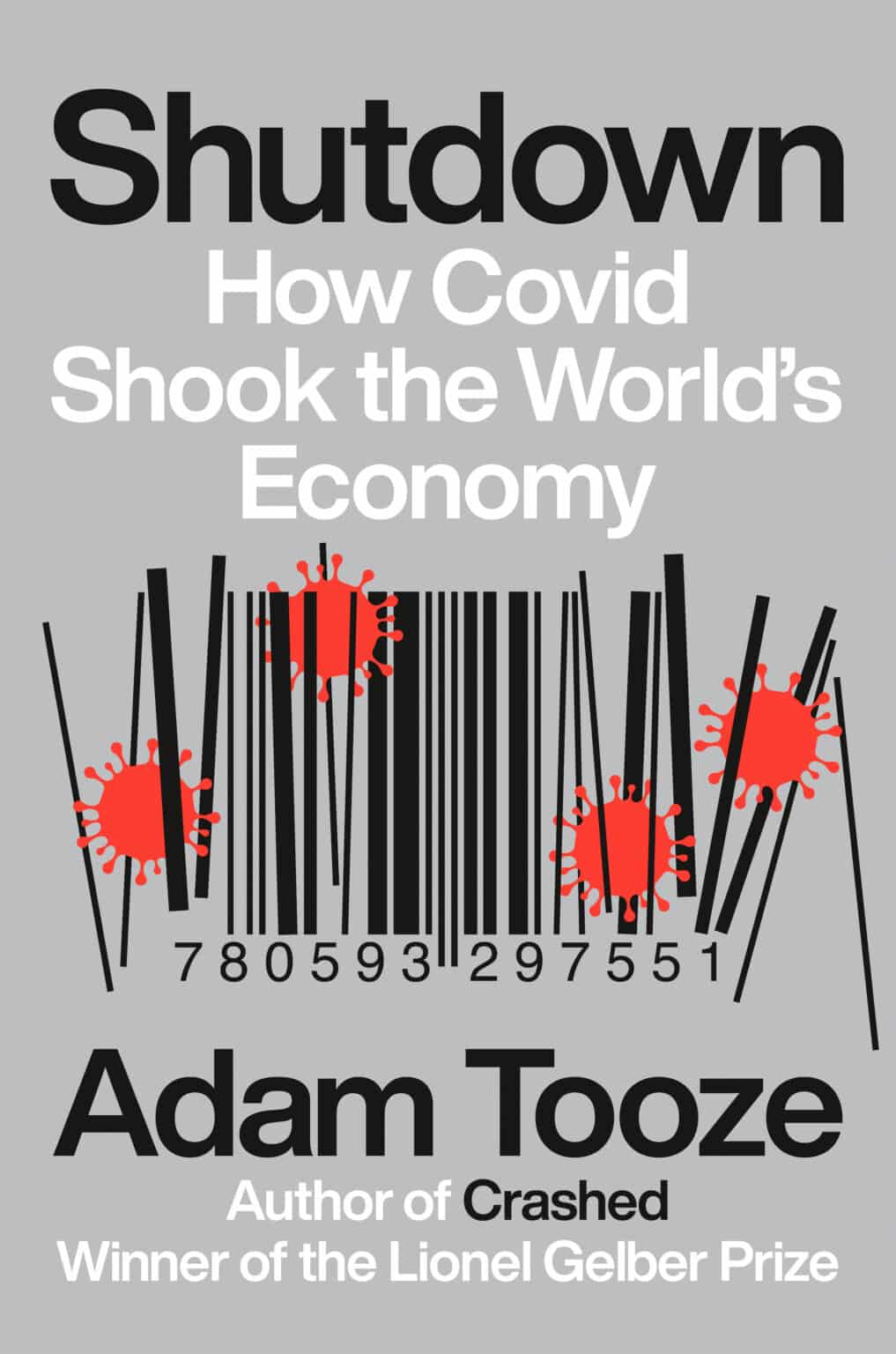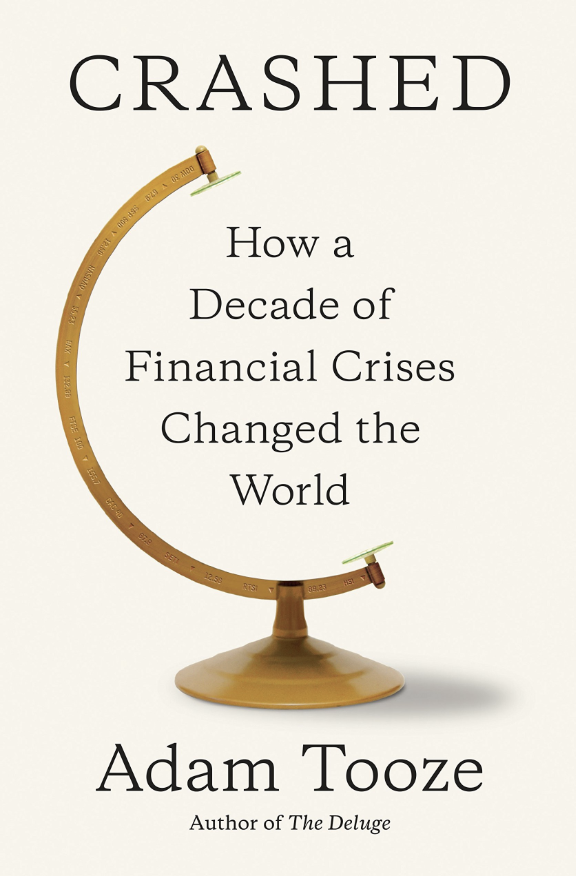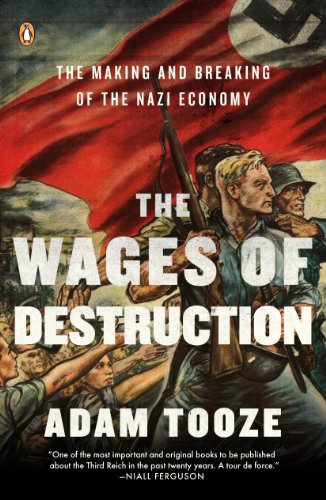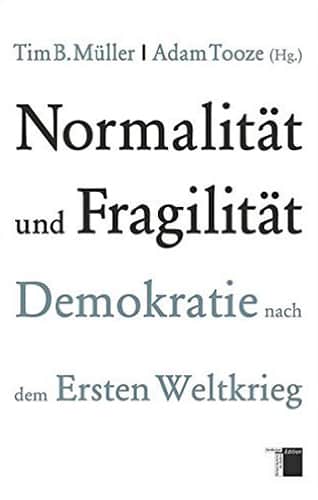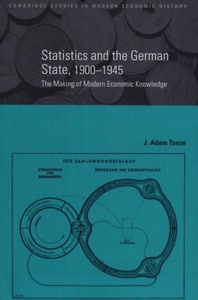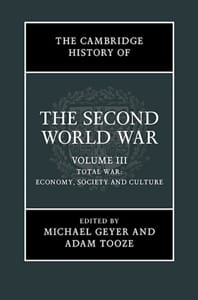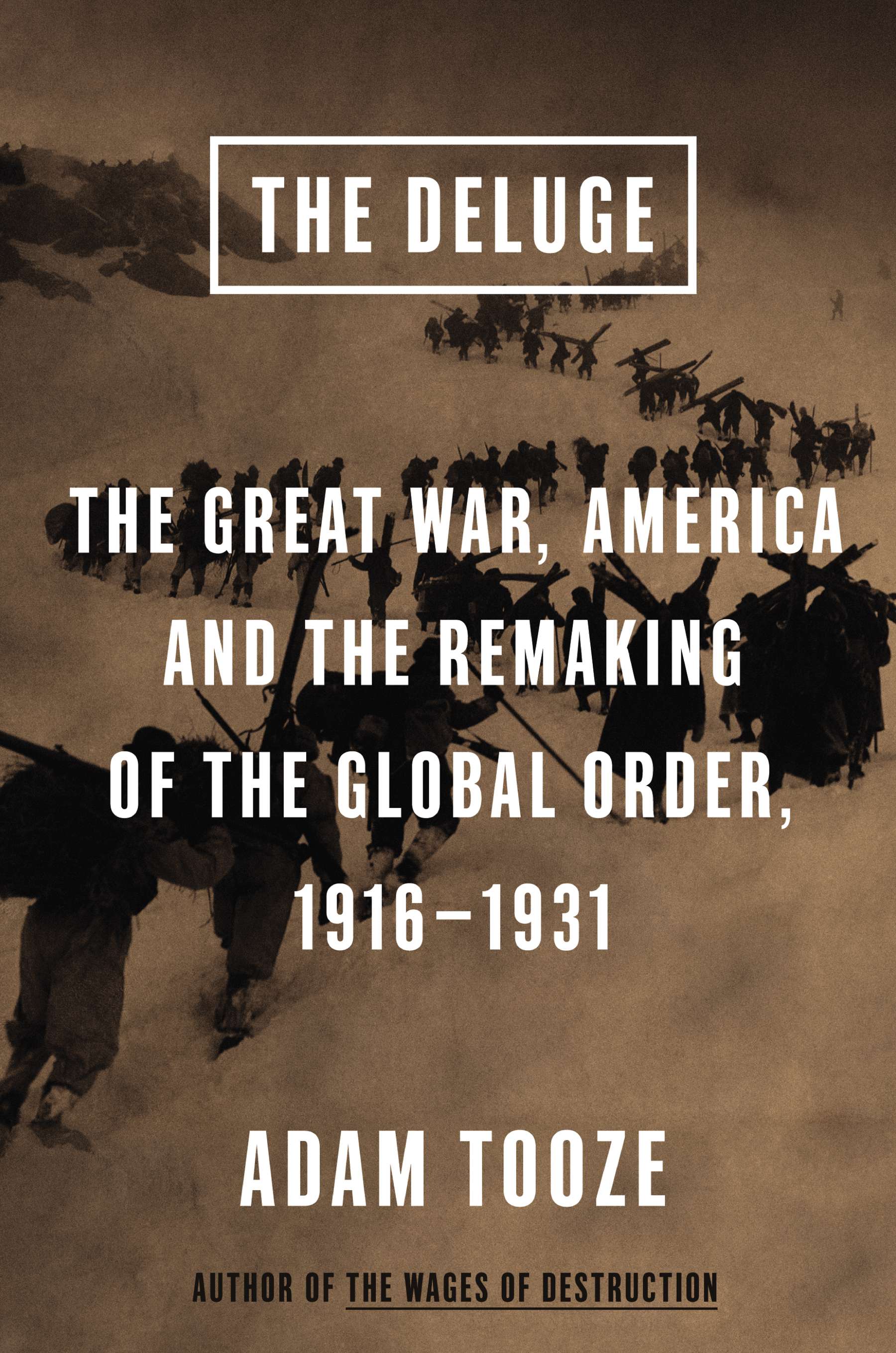
The Deluge: The Great War and the Making of the Global Order, 1916-1931 Penguin Allen Lane 2014
Ten years after World War I ended, what kind of international order had been established? With hindsight it must seem as though the postwar settlement was weak and lacked solid foundations. But this is not how it appeared at the time. In 1928, analysts as diverse as Winston Churchill, Leon Trotsky and Adolf Hitler, agreed that what had emerged from the Great War was a new international order framed by the power of the United States and the British Empire, and anchored on the European continent by the military predominance of the French Republic. This would be the order against which Hitler, Stalin, Mussolini and Imperial Japan would hurl themselves in the 1930s. As I described in Wages of Destruction, their challenge was of an unprecedented scale and this enormous effort was the backhanded compliment they paid to the order they were challenging. To understand what they were up against, we need to examine the preceding period in which the dominance of an American-centered world order first appeared. Deluge offers a new international history of the years after 1916, the moment at which the international order began to reorient itself around the pivot of American power.

The Deluge: The Great War and the Making of the Global Order, 1916-1931
Ten years after World War I ended, what kind of international order had been established? With hindsight it must seem as though the postwar settlement was weak and lacked solid foundations. But this is not how it appeared at the time. In 1928, analysts as diverse as Winston Churchill, Leon Trotsky and Adolf Hitler, agreed that what had emerged from the Great War was a new international order framed by the power of the United States and the British Empire, and anchored on the European continent by the military predominance of the French Republic. This would be the order against which Hitler, Stalin, Mussolini and Imperial Japan would hurl themselves in the 1930s. As I described in Wages of Destruction, their challenge was of an unprecedented scale and this enormous effort was the backhanded compliment they paid to the order they were challenging. To understand what they were up against, we need to examine the preceding period in which the dominance of an American-centered world order first appeared. Deluge offers a new international history of the years after 1916, the moment at which the international order began to reorient itself around the pivot of American power.
In 2015 Deluge won the LA Times book award for History. It was shortlisted for the Kirkus prize and was named by the Financial Times as one if its books of the year for 2014.
In 2014 I was invited by the European Center at Stanford to give a short series of lectures based on Deluge. Videos available below.
